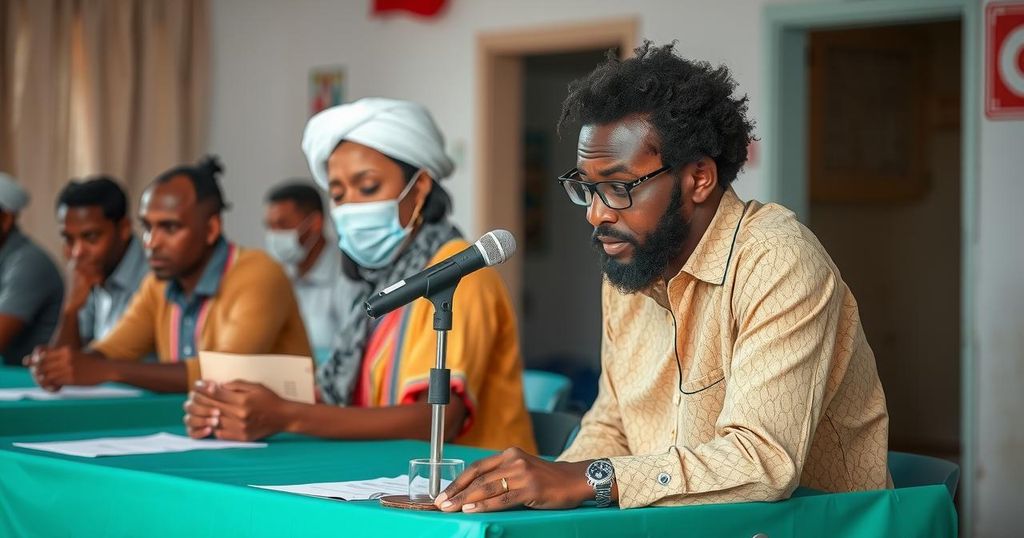Chad’s Elections: A Democratic Transition or a Political Masquerade?

Chad is conducting legislative and local elections, framed by the government as vital for democratic transition, yet boycotted by opposition, who label it a “masquerade.” These elections are amidst security threats from Boko Haram and previous allegations of electoral fraud. The ruling party seeks to reaffirm its mandate, while critics highlight authoritarian practices and media restrictions, complicating Chad’s socio-political landscape.
Chad is holding legislative and local elections on Sunday, which the government under President Mahamat Idriss Deby Itno claims as a crucial step toward democratic transition. However, opposition parties have dismissed these elections as a mere “masquerade.” The voting occurs amidst ongoing violence from the jihadist group Boko Haram in the Lake Chad region, the termination of a military agreement with France, and accusations of interference in the crisis in nearby Sudan.
President Mahamat Deby, who ascended to power in 2021 after the death of his father, Idriss Deby Itno, has been accused of fostering an autocratic regime. Following a presidential election last May, in which Deby secured a five-year mandate that opposition critics deemed fraudulent, the current elections are characterized by claims of significant irregularities and repression. The previous legislative elections were held in 2011, with subsequent votes often postponed due to security threats from jihadist groups, financial difficulties, and the impact of the coronavirus pandemic.
The government’s narrative of a “generational renewal” in the National Assembly contrasts sharply with the opposition’s portrayal of the elections as a form of legislative apartheid, as expressed by political leader Succes Masra. Meanwhile, government officials contend that the elections will strengthen the President’s mandate to pursue his political agenda, amidst a backdrop of societal unrest and international criticism.
Furthermore, the elections are occurring under tight media restrictions, with journalists striking against government-imposed regulations. Chad, which ranks poorly on the United Nations Human Development Index, faces numerous challenges, including a humanitarian crisis exacerbated by severe weather, resulting in significant fatalities and displacements among its populace.
Chad, a country in the Sahel region, has experienced political instability and military rule for decades. Mahamat Idriss Deby Itno took control following his father’s long-standing authoritarian regime, which lasted over thirty years. The country faces significant insurgent threats, particularly from Boko Haram, and socio-political tensions heighten amidst calls for democratic reforms. The recent elections mark a pivotal moment intended to transition from a transitional government to a more stable political framework, although these efforts are overshadowed by accusations of illegitimacy and oppression from opposition parties.
In conclusion, Chad’s elections this Sunday represent a critical juncture for its political future. While the government promotes the elections as a milestone for democracy, the opposition’s boycott and claims of autocracy cast doubt on the integrity of the electoral process. The prevailing security concerns and societal issues further complicate the country’s efforts to achieve political stability and legitimacy, thus highlighting the ongoing struggle for democracy in Chad.
Original Source: www.barrons.com







